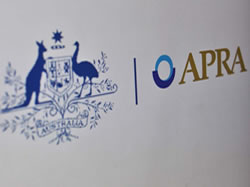 The Australian Prudential Regulation Authority (APRA) has released its final standard designed to strengthen remuneration practices across the banking, insurance and superannuation industries.
The Australian Prudential Regulation Authority (APRA) has released its final standard designed to strengthen remuneration practices across the banking, insurance and superannuation industries.
Deputy Chair of APRA, John Lonsdale said the Cross-industry Prudential Standard CPS 511 Remuneration introduced heightened requirements on remuneration and accountability aimed at creating more balanced incentive structures, promoting financial resilience and supporting better outcomes for customers.
“In doing so, it fulfils three of the key recommendations of the financial services Royal Commission directed towards APRA,” Mr Lonsdale said.
“As the Royal Commission made clear, poorly designed or implemented remuneration practices can incentivise behaviour that is harmful to consumers and detrimental to long-term financial soundness,” he said.
“CPS 511 will impose genuine financial consequences on senior banking, insurance and superannuation executives when their decisions lead to poor risk management or conduct that is contrary to community expectations.”
Mr Lonsdale said the Standard ensured that financial performance alone would no longer be enough when companies rewarded employees; the companies must also consider their impact on customers and risk management outcomes.
He said the Standard meant that where executives fell short, they would be at risk of losing their bonus.
“In keeping with APRA’s focus on transparency, the Standard will be supported by new disclosure requirements that will allow scrutiny of how effectively boards are adhering to the requirements and holding their executives accountable,” he said.
Mr Lonsdale said the Standard would come into effect from 1 January 2023, with a phased implementation starting with large authorised deposit-taking institutions.
APRA’s 20-page Standard can be accessed at this PS News link.









